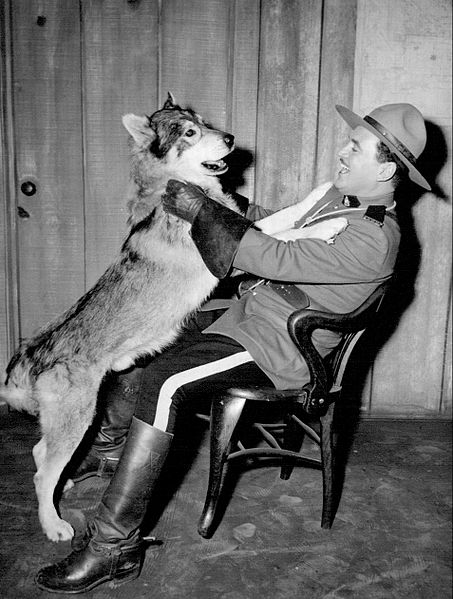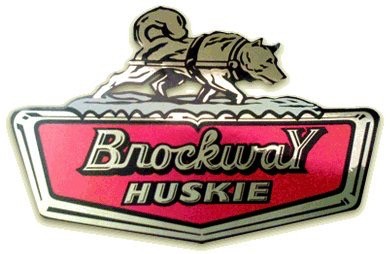
He was the “swiftest and strongest lead dog,” breaking the trail in relentless pursuit of lawbreakers in the wild days of the Yukon.
We could only be talking about the dog, “Yukon King,” arguably the true star of the radio show, and later in 1955, the television series called Sergeant Preston of the Yukon. In each episode, Sergeant Preston, a Royal Canadian Mounted Policeman, and Yukon King battled a new crisis. King, lead dog for Preston’s sled team, had a keen instinct for sensing criminals, but was equally adept in dealing with wild animals, children, and pretty much anything else that came his way.
As the story goes, King was a Siberian Husky (some sources refer to him as an “Alaskan Husky”) who’d been raised by a wolf. When a lynx attacks the wolf and King as a pup, Sergeant Preston arrived in time to save King, and raised him to be the lead dog on his sled team.
A few details about “King” are fuzzy. King’s breed was never really explained, and fans were left wondering if writers were guilty of a malaprop when they referred to him as an Alaskan Husky (not actually a breed of dog, but rather a dog defined by its use as a sled dog) instead of an Alaskan Malamute or Siberian Husky. On radio, the barks, whines, and howls of Yukon King were supplied by a sound effects man, Dewey Cole, and following his death, by actor Ted Johnstone. On television, Yukon King was played by “King,” an Alaskan Malamute trained by Beverly Allen. As an aside, after retiring, the real King went to live with the family of the President of Jack Wrather Prod uctions, producer of the Lassie and Lone Ranger TV shows. King lived on two acres of William Carey Graves and lived to an advanced old age well into the 1960s.
uctions, producer of the Lassie and Lone Ranger TV shows. King lived on two acres of William Carey Graves and lived to an advanced old age well into the 1960s.
As for the logo that was inspired by the dog, it was Bill Duncan, an employee of Brockway Carriage Works in Homer, New York, who got the idea to use a Husky for the company logo after being inspired by Sergeant Preston of the Yukon. After WWII, the truck company fell into difficulties when the demand for semi-trucks fell. An autonomous partnership arrangement with Mack Trucks saved the company from going under, and given Mack Trucks’ huge success with its Bulldog logo, Mack Truck executives pushed for Brockway to have a logo of its own. Brockway began advertising the Huskie name and logo on their trucks in 1958.
Folks of a certain age might enjoy a bit of nostalgia with the video clip below:
